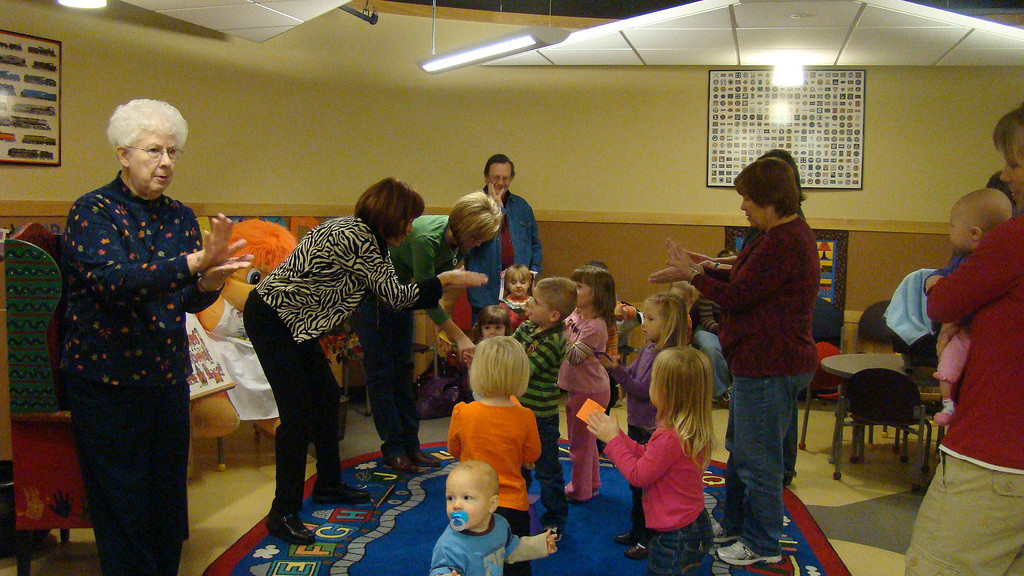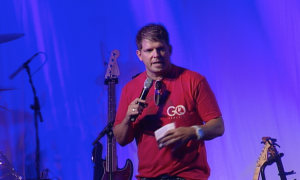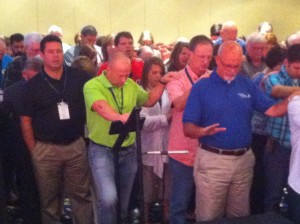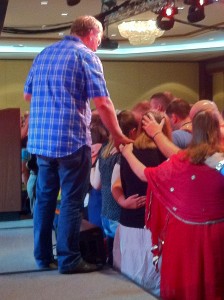By Franklin Dumond
This is the second and final installment of an article on approaching Children’s Ministry by Dr. Franklin Dumond. Read the first half HERE.
While even very young children can be placed in an environment that accelerates their learning, we now recognize that there can be significant drawbacks to Forced Teaching. A child can repeat from rote memory what has been presented without actually learning the concepts they were taught, making it appear that real learning has taken place.
Given this pattern of human development, it appears that the Lord has created us with the capability to respond most readily to the gospel somewhere about 8-10 years of age.
 Fourth, successful evangelism of children will result from an alignment of process. When the same concepts are expressed in the pre-evangelism of young children and in the evangelism of children, teens, and adults, evangelistic work will be more successful. When similar visuals and words are used throughout the process, evangelistic activity will be more productive.
Fourth, successful evangelism of children will result from an alignment of process. When the same concepts are expressed in the pre-evangelism of young children and in the evangelism of children, teens, and adults, evangelistic work will be more successful. When similar visuals and words are used throughout the process, evangelistic activity will be more productive.
A visual demonstration of our lostness and the need for a Savior can be presented by a simple game that portrays the Bridge Illustration frequently used while sharing the gospel.
Use a few children from the group to play the roles. If the group is small or if this is a pre-evangelism activity for younger children, use everyone. Indicate a starting point for the children and stand near an ending point, 5-10 feet away. Help them imagine that they are on one side and God is on the other side.
Ask them to jump across the distance so they can reach God. Since they only get one jump some will make more progress than others, but none of them will make it all the way. Some of the boys will believe that if they can have a running start or if they can try one or two more times, they can surely make it. Let them try.
Help them imagine a cross that bridges the gap. For younger children, having an actual cross on the floor will be helpful. Ask them if they can walk across the bridge to God.
For older children, explain how we respond to the gospel and invite them to do so. Using a simple gospel handout can help those who read to see the related Bible verses and have something they can take home and reflect on. Build the entire presentation around the key verse of I Timothy 2:5:
For there is one God and one mediator between God and men, the man Christ Jesus,
Explain that God is on one side and all people are on the other side, and Christ Jesus, himself man, is between them to bring them together by giving his life for all mankind.
Basic Principles of Evangelism for Children:
1. FREQUENCY—It can be very helpful to view the church as having a three semester year in its programming. This means that repeated emphases can be scheduled for late fall, early spring, and summer since attendance patterns and programming often follows these patterns.
2. CONTEXT—Evangelism for children should occur within the context of existing children’s ministries so that it is a natural expression of what the church is and does. Specialized settings should be avoided so that the decisions being made are genuine and not the result of peer or environmental pressure.
3. AGE STRUCTURED—Evangelism for children should be targeted to those children who can appropriately respond. While pre-evangelism can be done in groups with a variety of ages, the opportunity to respond should not be extended to younger children. A separate meeting area may be needed so each group can be treated in an age appropriate manner.
Evangelism Night:
1. Advance prep/counselor certification ensures that those who assist are all on the same page.
2. Seating arrangements: for both control and response it is better if children are not crowded together. This allows them to focus on the material and to respond for themselves rather than to respond to the peer pressure imposed because others around them are responding.
3. Age structure means there will be different lesson plans for younger children who are in the pre-evangelism mode.
4. Preliminary worship is always helpful to set the stage.
5. The gospel presentation should be simple, clear, concise.
6. Plan for a response time, and discuss with all adult volunteers how they should respond to the children.
7. Use one-on-one follow up counseling as much as possible with open ended questions to confirm what the children have heard and how they are responding. This breaks the evening into a two part process of a presentation and a follow-up.



